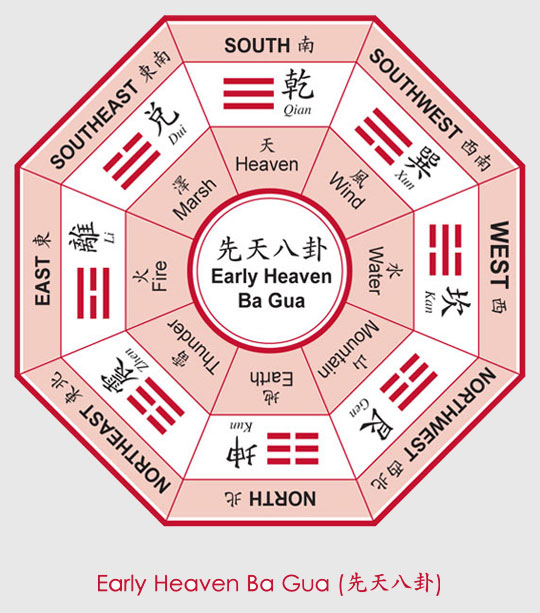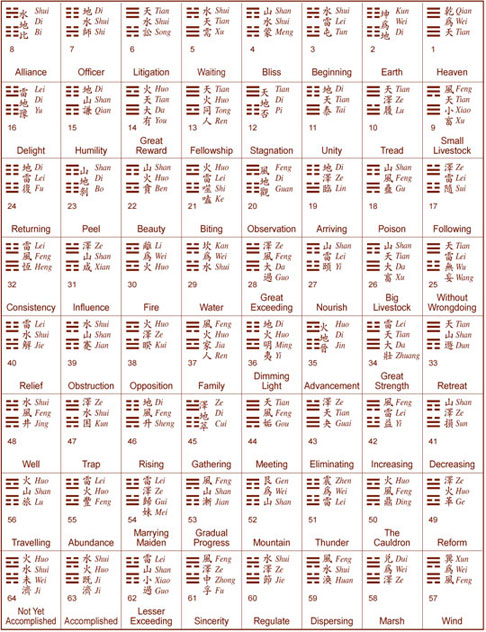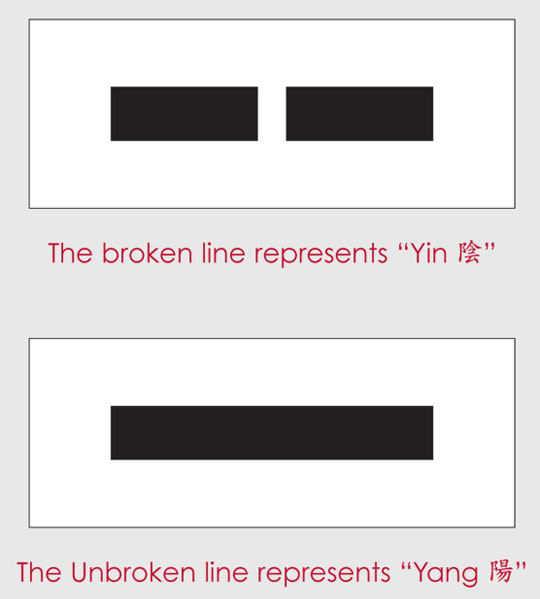Item Description
fiogf49gjkf0d 'Meaningful' numbers demystified.
Numbers are everywhere. On a car plate, receipt, hotel room door, price tag, the clock - everywhere. But do you ever feel that certain numbers call out to you? Are there any special combinations that keep reappearing in your life?
What if these numbers are trying to 'tell' you something, an answer to an important question that has been on your mind lately?
The predictive power of numbers is now revealed in Joey Yap's Yi Number Oracle, where he has streamlined, converted and simplified the practice of classical Yi Jing (Book of Changes) and presented it in an accessible approach for the novice.
This book focuses on one of many divination methods of the Yi Jing, the 384 Yao numbers. The techniques of the Image and Numerology School system have been converted into a new, easy to use system, while the 64 Hexagrams and the 384 Yao definitions have been transliterated and adapted for modern day application. Now anyone can arrive at the correct Yao definition with this handy mini book.
Yi Number Oracle has taken out the complicated formulas and calculations for you. With a minimal level of technical expertise, you too can discover what answers 'meaningful' numbers may reveal about your life.
Highlights of this book include:
- A Yao Derivation Table for numbers 0000 to 9999
- The 384 Yao definitions - answers to your questions
- An abridged history and explanation of Yi Jing
- My Yi Journal: record your life journey
Written for the layman, this book makes an ideal introduction to the expansive study of Yi Jing.
Click here to read Joey Yap's Preface to Yi Number Oracle.
No one escapes change. It is an inevitable force of life. Whether you choose to acknowledge it or not, the world is constantly evolving and life goes on. Change occurs when one of the following happens:
- Something new happens to us
- We do something new that causes change
When we are not happy with an aspect of our lives, the solution is often profoundly simple: Change something. When we feel the need for change, we are prompted to overcome our fear of the unknown, step outside our comfort zone and try something new. Change can be imagined as a force driving us forward, challenging us to grow and ultimately progress in life. We need this force. Of course, change sometimes scares us because it is not always for the better. At times, we are quite content and have no desire for change. Nevertheless, change cannot be avoided.
With any change comes a certain amount of uncertainty. What if a plan fails? What if it succeeds?
What if I change something and the outcome is undesirable? What if she says no? What if there is a better solution that I have missed?
If we could peep a little into the future, change would be a lot easier to deal with. Have you ever noticed that great business leaders often seem to have an uncanny ability to anticipate the future? They do this through intelligent analysis and assessment of their business decisions and situations. Great leaders need to masterfully ride the wave of change. They must accurately predict the result of their choices in order to be effective as a leader. The ability to anticipate the outcome of an action or inaction is priceless.
Scholars and sages in ancient China have long embraced the concept of Change. They do this through the study of the Yi Jing (易經). The Yi Jing is widely known as the Book of Changes. The Yi Jing can be described as a science of divination, grounded in mathematics. Yi Jing has its origins as a symbolic language of Yin and Yang. This language consist of 64 Hexagrams and 384 Yaos (Yin and Yang lines of all the hexagrams). Understanding this 'language' allows us to dial into the bigger picture. Call it the Universe, your subconscious mind, Guardian Angels, Ascended Masters, your spirit guide or your higher self.
By casting a Hexagram, we can use Yi Jing to get glimpse of the future, of a coming change. The Hexagram can give us some insight that can help guide us through whatever situation we are facing.
The Concept of
Chinese Fortune Sticks |
You may have heard of an ancient form of divination called Qiu Qian (求籤) or Chinese Fortune Sticks. It is commonly practiced in Taoist or Buddhist temples even in the present day. Despite this, this form of divination actually does not originally have any religious connotations! Its provides answers that are derived from the Science of Probability and Affinity, which stems from the study of the Yi Jing.
A person who requires answers from a sacred oracle shakes a cylinder known as the Qian Tong (籤筒) in front of the altar. This cylinder (usually) contains 100 flat bamboo sticks, each inscribed with a number. Eventually, at least one stick falls out and lands on the floor. Each numbered stick corresponds to a different answer from the divine. This concept of Qian* (籤) represents sticks, symbols or numbers, where Qian is derived from the 384 Yaos, which are part of the Yi Jing system.
The original form of Yi Jing centers around the interpretation of the Gua Text (Conceptual Rational Meaning 義理) by Zhou Wen Wang (周文王) or King Wen, a ruler of the Zhou Dynasty who reigned between 1099 BC and 1050 BC. This is the oldest, often most difficult form of the Yi Jing, also known as the Zhou Yi (周易). In this format, the Yi Jing is primarily text-based. Users are required to have a thorough and deep understanding of the ancient texts.
Centuries later, sometime during the Song Dynasty (960 - 1279), a new school of Yi Jing known as the Image and Numerology school (象數派) emerged. The simpler symbolic and numerical approach was developed from the original form by philosophers like Shao Yong (邵雍) and involves the interpretation of Images and Numbers of the Hexagrams. This newer method made it easier to consult the Yi Jing.
All interpretations of Yi Jing center around the concept of Yin and Yang and the 64 Hexagrams, collectively known as "Gua". It is believed that the Yi Jing's hexagram was invented by Fu Xi (伏羲), a legendary Chinese ruler during 2800 BC to 2737 BC. He is credited with creating the first trigram arrangement, which is known as the Early Heaven Ba Gua (先天八卦), wherein the trigrams are presented as pairs of complementary opposites.

The Later Heaven 64 Hexagram chart arrangement was subsequently created by King Wen some 1,000 years later. This form is known as the Later Heaven Ba Gua (後天八卦).

The 64 Hexagrams reflect sixty-four individual situations in the Yi Jing, each indicated by a symbol made up by six lines, where each line can be either broken or unbroken. The broken line represents "Yin"; the unbroken one represents "Yang". The six lines of each of the 64 Hexagrams lead to 384 possible lines in total. These represent the 384 Yaos mentioned earlier. To put it simply: there are 384 possible "answers" to a given question.

| The Concept of Divination |
What is divination?
Divination is the act of getting answers from the divine (or the Universe) using symbols, words or numbers. The Yi Jing is a tool that allows us to convert seemingly random information into useful answers from the Universe or Mother Nature. When you are at a junction in life and you don't know what to do, Yi Jing can help give you an idea of how things are going to turn out. This can allow you to prepare, give you peace of mind or help spur you on to act if you are going through a period of indecision.
Let's say you have an important decision to make. Perhaps something that relates to work, or you have an opportunity to start your own business but are unsure if this would be wise. You've been dwelling on the situation for days. During this time, you've also observed something uncanny: like the constant appearance of the number 1692 in your surroundings and in your thoughts. You see it on a billboard across the street and in graffiti sprayed on a wall of a shop. You hear it mentioned in an announcement made on an intercom. You might even see it in your dreams. Pretty soon, you find yourself wondering: what does 1692 mean? Is the universe trying to 'tell' you something?
In the science of divination, this is called "meaningful coincidence" or synchronicity.
When a seemingly random, insignificant number or set of numbers repeatedly catch your attention - especially during a time of deep thought or an important life event - then, it is likely that they hold a special meaning for you. When this happens we often want to know "what" these numerical occurrences mean to us. By translating these meaningful numbers into one of the 384 Yaos of the Yi Jing, we can unveil their secret meaning.
The idea of divination seems remarkable to many. There are a wealth of competing explanations as to how it works and why it works. Some Chinese believe that ancestors guide them through Yi Jing whilst others believe that the system allows one to tap into the collective awareness of all humanity. Regardless of where the answers of Yi Jing come from, as long as your mind is clear and that you ask with true sincerity, they are accurate. The system would not have survived to this day if the wisdom it provides was not genuine, useful and timely.
This book, the Yi Number Oracle, allows you to convert special 'meaningful' numbers that appear in your life to gain valuable insight into the future of a particular action or person. When you are faced with a crossroad in life, or when you are stuck in a quandary, you may find a random but significant and prominent number that somehow 'speaks' to you. This number will lead to an answer to your question. Science has long known about the power that numbers hold. Mathematics is known as the universal language. Indeed, messages sent into space consist of mathematical, numerical messages rather than the spoken word. There are patterns, unexplained connections and more hidden within mathematics and the language of numbers. Somewhere, amongst all of this, may lie a complete explanation for divination. For now, you may have to be content to simply try it for yourself. Seeing, after all, is believing!
The wisdom of the Book of Changes, the Yi Jing, used to be off limits to many people. To learn the entire original language of the Yi Jing is not an easy task. Learning the 64 Hexagrams, the Gua Texts and Yao Texts would be too tedious and difficult for the novice.
The idea behind this book - the Yi Number Oracle - is to simplify the texts of the 384 Yaos of the Yi Jing, and convert them into something systematic and EASY for the layman. This is through using everyday 'numbers' instead of learning the Hexagram symbols. This is the easiest way to use Yi Jing but many people are still apprehensive. Not everyone has a good head for numbers - some are reminded of school days filled with challenging arithmetic, abstract calculation and algebra that they have long since left behind and have no desire to revisit. Other people, of course, love numbers.
Regardless of your viewpoint, there is really nothing to be scared of, though: the system really couldn't be simpler to use. Instead of casting a Hexagram and reading the ancient Yi Jing texts to interpret what you have, all you need to do is to obtain a 'meaningful number' related to your situation and look it up in this book. That's it! This concept harks back to the ancient temples. Remember the Chinese Fortune Sticks (籤筒) mentioned earlier? Now, you do not need to go to the nearest temple to do this, or even consider changing your religion. As explained, the original form of Yi does not have any religious affiliations or connotations. It's merely a science of probability and a language that allows you to connect to greater knowledge.
In this form of divination, we arrive at an interpretation simply by looking up our chosen meaningful number.
| How to Consult the Yi Number Oracle |
Picture this scenario. You are worried about the outcome of a business meeting in London. This important meeting has been keeping you up at night and so naturally you are keen to know the outcome and if there is anything you can do to prepare or to make sure that the meeting will be successful. The hotel room number you checked into is 5862 and somehow this number has kept flashing in your mind since you arrived. Do these four digits carry some significance?
This is where the Yi Number Oracle book comes in. Simply locate 5862 in the table provided on Page 186 and refer to the corresponding Yao number interpretation. The answer to your questions about the outcome of the meeting lies there.
Let's try another example: you wake up one morning thinking about a property you've considered buying. At this point, you've already done all the research on this property and you need to make a decision soon. As you drive to work that same morning, considering your options, you noticed a car parked with the registration number 2887. Shortly after, you received a phone call from a friend whose phone number ends with the same four digits, 2887. These numbers reappear again that evening on a grocery receipt totaling $28.87. Is this some sort of a hint from the universe, you wonder? Find out by looking up for the number 2887 in this book. The corresponding Yao interpretation will help guide you in your decision.
According to the Image and Numerology School of Yi Jing (象數派), every number has a "meaningful significance". This is because every number can be converted to its corresponding Hexagram. However, such numbers may or may not hold a certain meaning to you at that time. There are two parts in the divination process you must observe to derive a meaningful advice from the Yi Number Oracle.
Before you seek the meaningful significance of a particular number, you must first have a clear question in mind. In order to gain an accurate answer, you must pose a precise question and not an ambiguous one that only calls for an ambiguous answer, or a simple Yes or No answer.
Don't ask questions like "Will this meeting be a success?" or "Should I invest in this property?" Be more specific with your question - that is, pose a clear and precise question that leads to a defined outcome or course of action. Something like, "What will the outcome of this meeting be if I present this proposal?" or "What will happen if I buy that property today?"
It's crucial that you take the Yi Jing's wisdom at face value. This means you should only ask your question once and accept the answer that is given. If you do not like the answer you received, it does not mean you could ask the same question again and again until you get the answer you want. It doesn't work that way. The first, most sincere attempt will give you the correct answer.
When consulting Yi Number Oracle, you need to be sincere with your intentions and thoughts. Calmly meditate and reflect upon your question before you proceed with the divination. Another way of doing this is, depending on your spiritual beliefs, to seek for wisdom from the higher power according to your spiritual beliefs to guide you along the right path.
Thereafter, pay attention to the next significant number that appears to you in your daily routine. Meaning, as you go about your normal daily activities, you may notice several re-occurrences of a particular number that almost seems like it is calling out to you. Look it up via the Yao Number Derivation table and you will find the Yi Jing's answer to your question.
Yi Number Oracle is completely compatible with any spiritual belief, practice or lack thereof. If you are not religious, simply meditate on your question and seek your own subconscious mind for the foresight and wisdom to see the path ahead. Just make sure you do so with sincerity in your heart! Be calm and be clear.
There is no one place where your divination ceremony must be performed. In fact, a 'ceremony' or ritual is not even necessary. Simply find a spot away from the hustle and bustle of the busy world. It can be your bedroom, living room, or garden. Any place that is clean, neat and quiet, and that has a table or desk on which to perform the divination will suffice.
You can also consult the Yi Number Oracle for someone else like a friend or family member. Instruct your friend to calm his/her mind and ponder upon a question they wish to be answered. Ensure they are clear about what they want to know and what action they intend to take. Then, ask them to reveal the four-digit number that has been significant to them of late. Finally, refer to the number's Yao text in this book for its meaning.
|